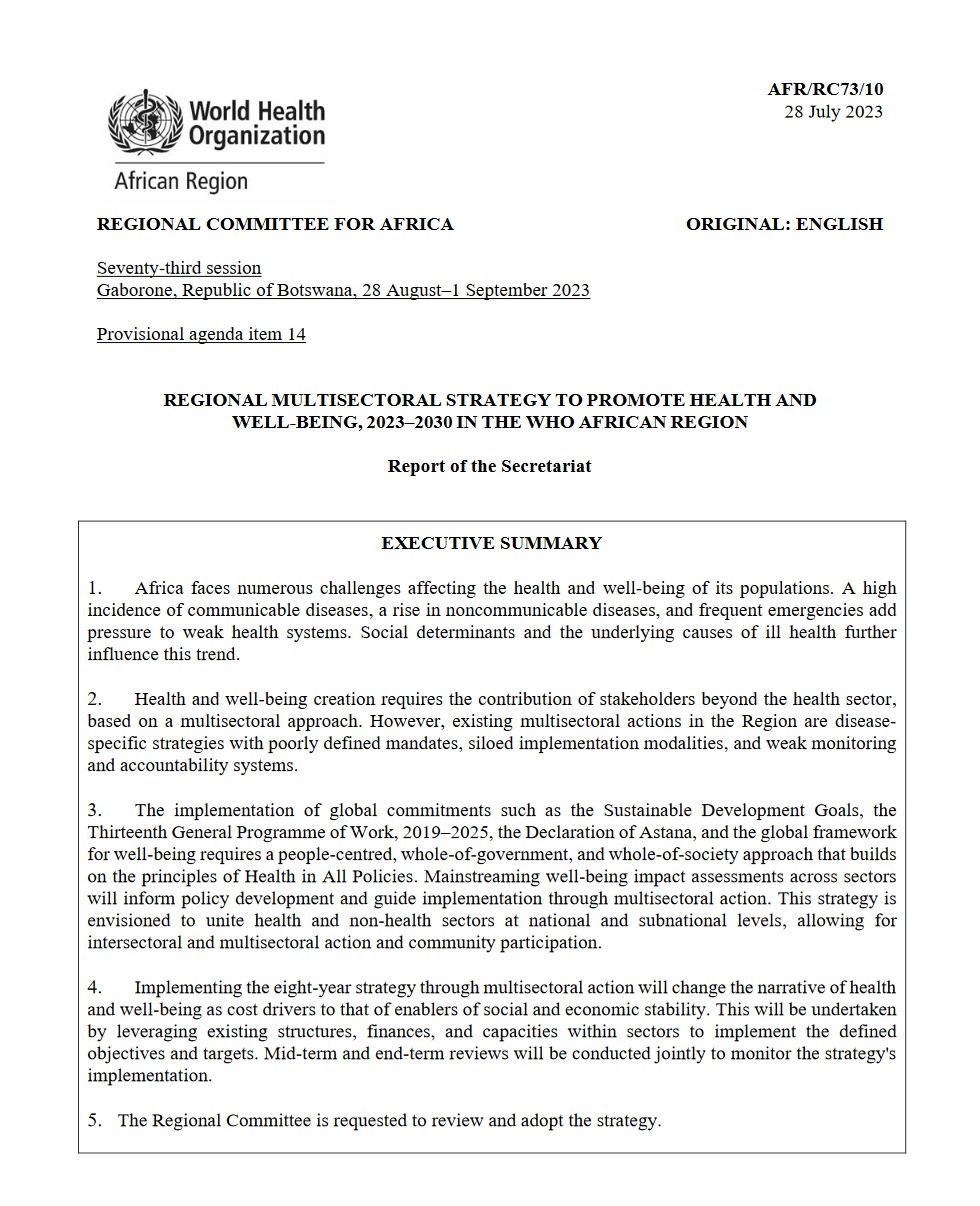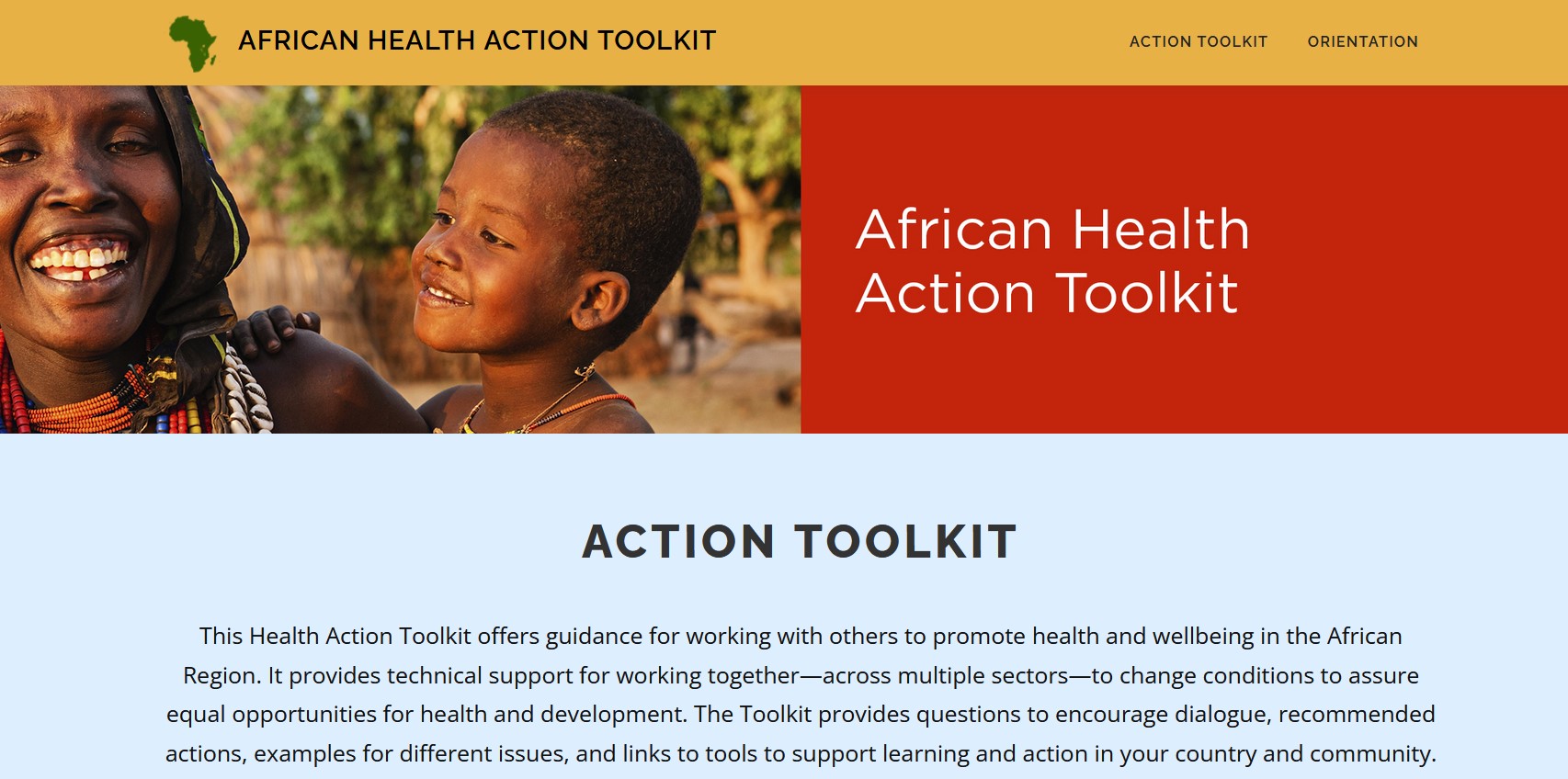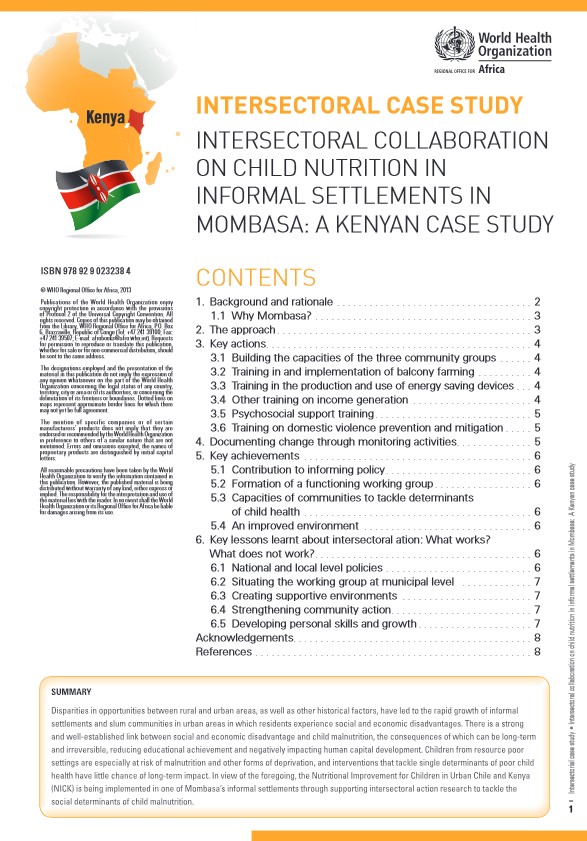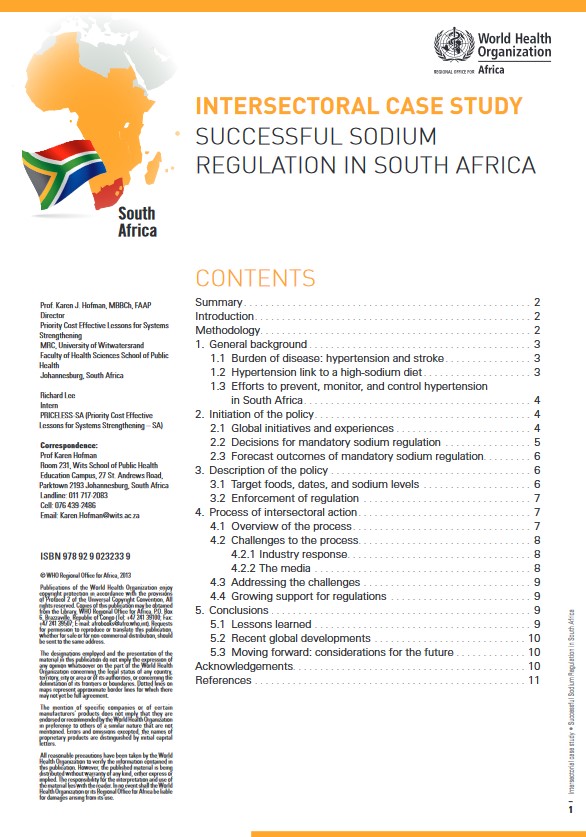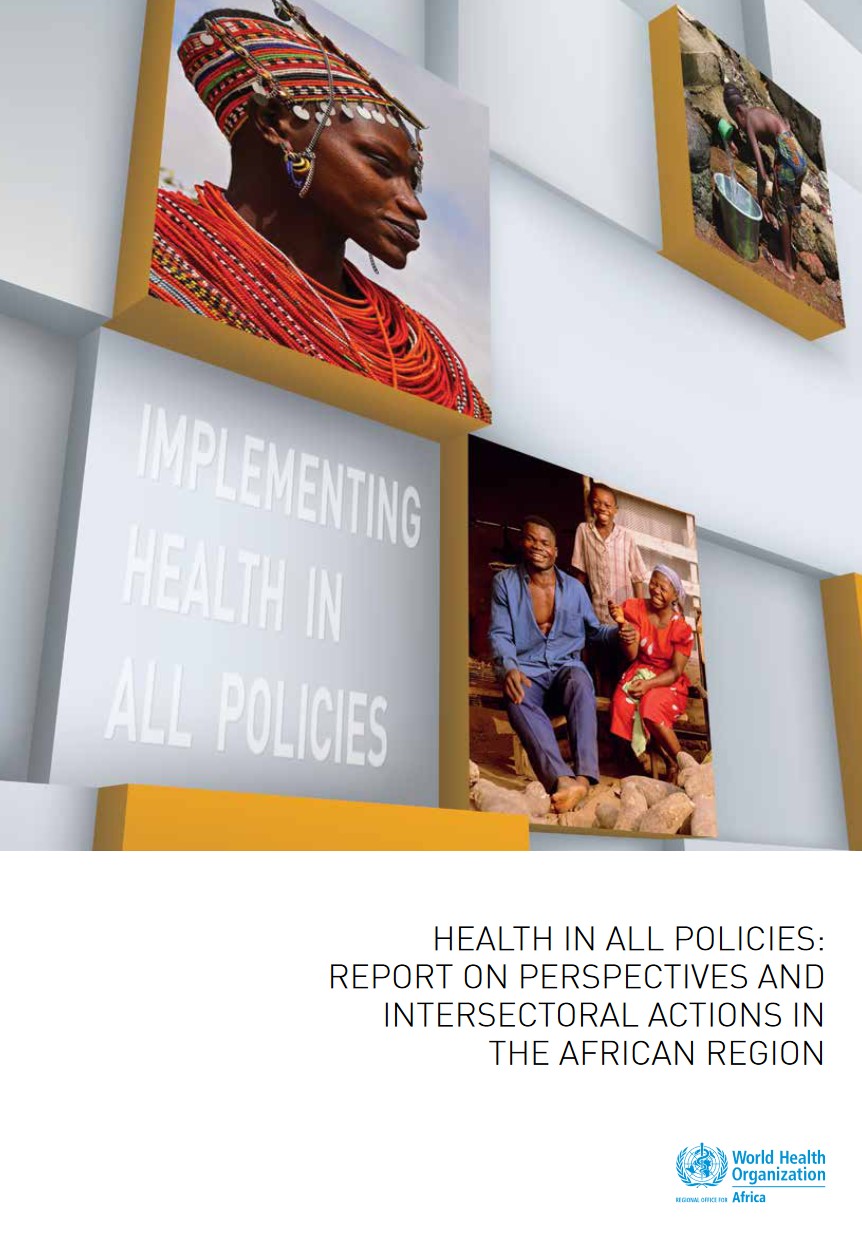World Health Organization. Regional Office for Africa
Regional multisectoral strategy to promote health and well-being, 2023–2030 in the WHO African Region: report of the Secretariat
Strategy document
27 Aug 2023
Africa faces numerous challenges affecting the health and well-being of its populations. A high incidence of communicable diseases, a rise in noncommunicable diseases, and frequent emergencies add pressure to weak health systems. Social determinants...

